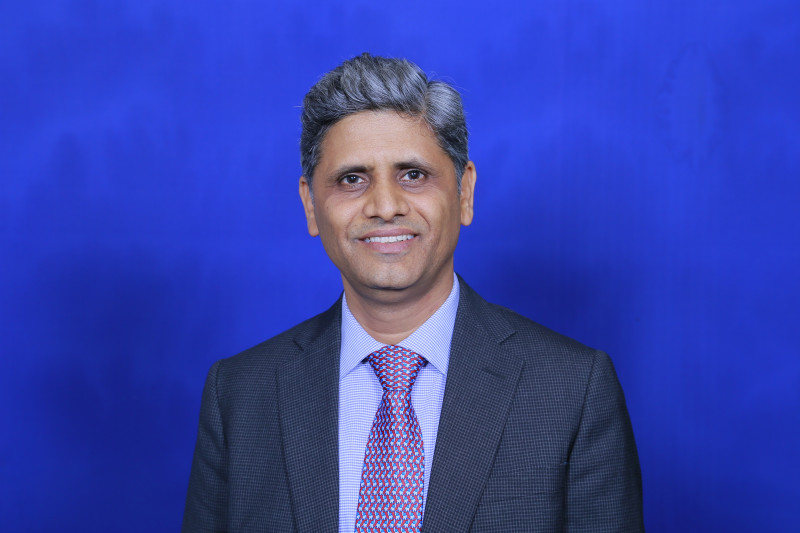As India gears up for the Union Budget 2025, leading voices from the technology sector share their expectations and recommendations for policy initiatives. Industry leaders from diverse segments including AI, healthcare, wearables, and digital solutions emphasize the need for strategic investments in emerging technologies, digital infrastructure, and workforce development. With India's AI market poised for significant growth, these tech executives outline key areas where budgetary support could accelerate innovation and maintain India's competitive edge in the global technology landscape.
Rajeev Singh, Managing Director, BenQ India and South Asia - Prioritizing AI, Digital Infrastructure, and Manufacturing said, "As we approach the Union Budget 2025, targeted investments in emerging technologies such as artificial intelligence (AI) should remain a key area of focus. With India's AI market projected to reach $17 billion by 2025, there is a strong call for enhanced government support in AI research and innovation. This includes the need for research grants, tax incentives, and public-private partnership frameworks to make long-term AI research commercially viable.
We also strongly anticipate enhancements in digital infrastructure, particularly in rural areas, to improve financial inclusion and integrate underserved communities into the economy. The budget should also consider the necessity of high-performance computing resources, data centers, and specialized AI hardware to support innovation. Government support through shared infrastructure models could democratize access to these essential resources and facilitate the growth of AI capabilities across the nation.
In addition, the establishment of India's first private semiconductor facility in Andhra Pradesh is expected to receive support in the upcoming budget. This initiative will bolster local manufacturing capabilities and reduce dependency on foreign imports, which is vital for the tech sector's growth. With the manufacturing sector being a critical driver of economic growth, we also hope for expanded Production Linked Incentive (PLI) schemes that could create millions of jobs while enhancing India’s manufacturing exports.”
Gerald Jaideep, CEO, Medvarsity Calls for Policies to Empower Digital Healthcare Education said, “As we anticipate the 2025 Union Budget, there is a strong need for policies that support the growth of digital healthcare education and skilling in India. Initiatives such as tax incentives for organizations investing in healthcare upskilling, funding for digital learning infrastructure, and promoting public-private partnerships can play a transformative role. Additionally, prioritizing innovation and technology in healthcare education will help bridge skill gaps and ensure a future-ready workforce. We hope for a budget that empowers the healthcare ed-tech sector to drive meaningful and scalable impact across the nation.”
Ravi Kunwar, VP and CEO, HMD India and APAC: Strengthening Mobile Manufacturing: Call for Enhanced PLI Schemes and Local Value Addition said, “As we approach the Union Budget 2025, we see immense potential for policies that could strengthen India's position in the global mobile manufacturing landscape. The Production Linked Incentive (PLI) scheme has been a game-changer for domestic manufacturing and, we believe providing a boost to the PLI scheme with a focus on increasing local value addition to more than 18% is indispensable. Simultaneously, initiatives like these could support the localization of critical smartphone and feature phone components, as this aligns with both our business strategy and India's vision of technological self-reliance is something we as a brand are anticipating.
The upcoming budget has the potential to strengthen domestic component manufacturing, particularly in the mobile segment. We look forward to policies that will boost indigenous production and create a more robust supply chain.
Our commitment to 'Make in India' remains firm, and we look forward to policy frameworks that could help us to deepen our manufacturing footprint in the country. We are optimistic that the budget will introduce measures to support technological innovation and sustainable growth in the mobile manufacturing sector.”
CP Khandelwal, CEO PR Innovations and Brand Custodian, Amazfit India Calls for R&D Incentives and Digital Growth said,“As we approach the 2025 Union Budget, we hope for policies that further accelerate the growth of the technology and wearable industry. This sector thrives on innovation, and initiatives such as incentivizing R&D, reducing import duties on key components, and offering tax benefits for companies investing in advanced technologies could drive significant progress. Additionally, measures to promote digital adoption and skill development in tech will ensure India remains a leader in the global wearable market. We look forward to a budget that fosters innovation and positions the technology sector as a cornerstone of India's economic growth."
Srividya Kannan, Founder and CEO, Avaali Solutions: Fostering AI Innovation and Digital Talent: Building India's Tech Leadership, “The 2025 Union Budget should focus on creating a robust ecosystem that incentivizes the adoption and development of AI across industries while empowering the tech workforce through structured learning initiatives. It is vital for the government to support R&D and innovation in AI so that India solidifies its position as a global leader in technology innovation. I’m keen to see the government allocate subsidies, incentives, or grants specifically for developing AI-driven solutions. Policies supporting R&D in AI applications, particularly for enhancing automation, improving efficiencies, and enabling data-driven decision-making, will give Indian businesses a competitive edge in global markets. An emphasis on building cybersecurity infrastructure and policies that encourage the adoption of digital and AI workflows will play a pivotal role as well. Grants or tax breaks to promote AI-enhanced automation platforms will help organizations streamline their processes while staying globally competitive.
Moreover, for India to retain its status as the digital talent powerhouse of the world, upskilling and reskilling the workforce should be a priority. The budget should allocate increased funding toward government-sponsored training programs in AI, machine learning, and cybersecurity. Partnerships between academia and industry to create advanced certification programs could further prepare the workforce for the demands of enterprises undergoing digital transformation. Special focus on women’s participation in tech through scholarships or incentives would also ensure a more inclusive ecosystem.”
Sushant Roy, Co-founder COO, and CBO at Alyve Health said, As the Union Budget 2025 approaches, it is essential to spotlight the transformative role of comprehensive health plans in promoting proactive healthcare. These plans are reshaping health behavior by encouraging regular check-ups, personalized assessments, and sustainable habit-building activities.
To accelerate this shift, we recommend the government focus on:
Strengthening Digital Health Infrastructure: Ensuring access to personalized health plans and data-driven insights for better adherence and outcomes.
Standardizing Annual Health Assessments: Promoting early detection and preventive care as a national priority.
Expanding Access to Underserved Regions: Leveraging technology to bridge healthcare disparities.
Improving Access to Immediate Expert Consultation and Health Education: Empowering individuals with timely advice and the knowledge needed to make informed health decisions.
By prioritizing these areas, the Union Budget 2025 has the potential to foster a proactive healthcare ecosystem, reduce long-term healthcare costs, and create a healthier, more productive workforce. This approach aligns with building a resilient healthcare framework that ensures better outcomes for all Indian citizens.


